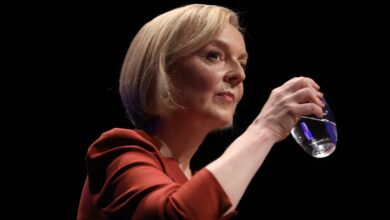Low expectations as Iranians wait for a renewed nuclear deal

By Jaime Leon
Tehran, Aug 22 (EFE).- Iranians have low expectations for the revival of the 2015 nuclear deal, which would result in the lifting of an array of tough US sanctions and relieving an economy crippled by inflation.
After 16 months of negotiations between Iran and the world powers, the renewal of Tehran’s landmark pact, that former US president Donald Trump pulled out from in 2018, seems closer than ever.
A return to the deal would allow Iran to sell oil in global markets, recover frozen assets in overseas banks and maintain normal economic ties with other countries.
But many Iranians are not convinced that the economic benefits of an agreement will prevail on the population.
“The fact that there is an agreement is not very important because it will not influence our lives,” Elham, a 58-year-old resident of Tehran, tells Efe.
Elham believes that reaching an agreement may help facilitate finding some medicines and other products in the country, but she does not expect it to “give a breather” to the population due to the “high corruption” of the political class.
“We work just to eat,” says Elham at the Tajrish bazaar in northern Tehran.
Hosein, a 60-year-old shop owner, shares Elham’s doubts that the agreement will have an impact on the population.
“The situation is difficult for everyone and we have no hope for the future”, he says.
Hosein thinks that what Trump’s actions in 2018 could be repeated.
“When the Republicans come again, we will be in trouble,” he says, referring to the fact that it is the Democratic administration of US president Joe Biden that is trying to seal the deal.
Iran’s economy has been hit by galloping inflation, the coronavirus pandemic and US sanctions, a situation that has led to protests over the rising cost of living in recent months.
In May, protests broke out in several cities over the high price of bread and other basic foods after the government eliminated subsidies. The protests leftat least four people dead amid clashes with security forces, according to Amnesty International figures.
“Iran’s economic problem is not just lifting the sanctions,” economic analyst Mahmood Jamsaz tells Efe.
The economist considers that the Persian country has “inefficient economic policies” that focus on the “ideology” of the Islamic Revolution rather than growth.
“The ideology (of the Islamic Revolution) comes before national interests. The priority is not for the economy,” says Jamsaz.
In 2015, hundreds of Iranians took to the streets to celebrate the signing of the nuclear deal in hopes of a better life but now, it is not clear whether celebrations will take place. EFE
ar-jlr/smq/mp





